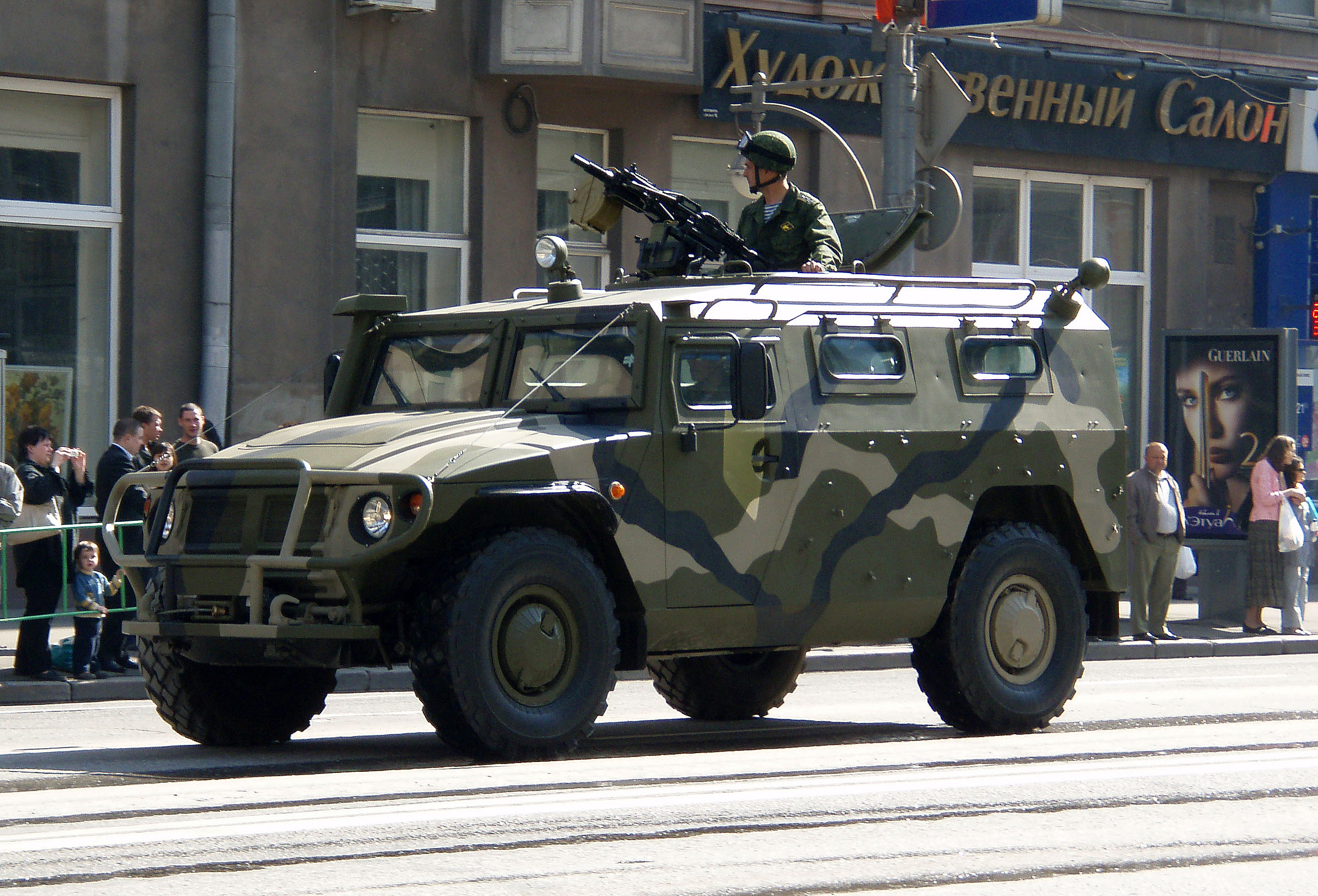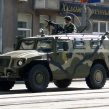
Russia Counts on Western Input For Modern Arms Production
Publication: Eurasia Daily Monitor Volume: 7 Issue: 154
By:

On August 2 in Sochi and August 8 in Sukhumi, Russian President, Dmitry Medvedev, took personal credit for the military dimension of Russia’s modernization campaign. He also stated that the August 2008 conflict with Georgia catalyzed Russia’s decision to equip its forces with advanced military hardware.
The defense ministry’s funding for procurement of modern weaponry has just been increased by a further 50 percent over the previous planning guidance, Medvedev told the press. At the newly approved funding levels, “our armed forces should in ten years’ time possess fundamentally new weapons and equipment.”
The funding decision required “energy and toughness” from Medvedev personally: he “himself drove the decision through,” while the government was concerned about balancing the budget, he said. This remark sounds as if Medvedev is outdoing Prime Minister, Vladimir Putin, in promoting Russia’s military modernization. However, Medvedev did reflect the leadership’s consensus on a massive increase in arms procurement “during this most difficult period” of economic crisis in Russia (Interfax, ITAR-TASS, August 2, 8).
Russia counts on imports from the West for a significant part of its planned spree in arms procurement. Moscow’s preferred business model envisages buying a first batch of the equipment from the Western producer, along with the license; and continue serial production in Russia, whether independently or on a joint-venture basis with the Western producer, depending on the technical complexity involved.
The ambition to maximize the share of Russian inputs in the finished product is high at this early stage. According to the First Deputy Defense Minister responsible for armaments, Colonel-General (retired) Vladimir Popovkin, “neither armor, nor armored hardware should be purchased in the West as finished products.” In this specific case, Russian confidence seems based on ongoing development of armor made from nanomaterials in Russia. The defense ministry was only recently looking for armor plate made in Germany to fit Russian combat vehicles (RIA Novosti, August 6).
Russia’s state corporation Rostekhnologii is negotiating with the Italian Industrial Vehicles Corporation (Turin-based Iveco, a part of the Fiat concern) to buy the license for assembling Iveco’s M-65 armored vehicles in Russia. The Russian side has designated the KamAZ heavy-vehicle plant in Naberezhnyye Chelny for this joint-venture project. Rostekhnologii CEO Sergei Chemezov (veteran top official in the arms industry) is concurrently the board chairman of KamAZ. The Rostekhnologii itself and Russia’s Foreign Economic Relations Bank (Vneshekonbank) are among the KamAZ shareholders. Moscow hopes to have the production line start before this year’s end, eventually to turn out at least 500 M-65 armored vehicles per year. Russia’s defense ministry says that it has budgeted almost 30 billion rubles, or approximately $1 billion, for procurement of these vehicles. Apparently, the Russian government and military recognize the M-65’s superiority over the indigenous Tigr and Volk armored vehicle, produced by Russkie Machiny within Oleg Deripaska’s conglomerate (RIA Novosti, Kommersant, August 6).
At the recent arms industry forum in Zhukovsky near Moscow, Russia’s defense ministry and the French company Sagem (part of the SAFRAN holding) entered into negotiations on possible sale of Sagem’s Sigma-30 fire control system, for upgrading Russian artillery and multiple-rocket launchers. The French company has supplied this advanced system to armies of several NATO member countries. Meanwhile, Russia’s defense ministry and Sagem are also negotiating for possible sale of the French company’s “Felin,” the field kit of the “soldier of the future.” Moscow wants this French equipment for the GRU’s Spetsnaz units (Vremya Novostei, July 5).
The French Mistral warship class remains the flagship in more than one sense of the arms deals, currently under negotiation between individual NATO member countries and Russia. On the same day when Medvedev spoke in Sochi and Sukhumi (see above), the Commander-in-Chief of Russia’s Navy, Admiral Vladimir Vysotskiy, called in Moscow for speedy completion of the negotiations with France, so as to sign the contract during the Euronaval event in October in that country (RIA Novosti, August 2). Vysotskiy helped initiate the negotiations for the Mistral acquisition in September 2009 by arguing that it would enable Russia’s navy to perform much better than it did against Georgia in August 2008.
Negotiations are ongoing over the sharing of French high technology on the Mistral (particularly electronics) and apportionment of construction work between French and Russian shipyards. On the latter issue, the bargaining is down to construction work on the second of four Mistral-class warships. It is apparently agreed that the first ship would be built in France, and the third and fourth in Russia under French license and with French technical assistance. French President, Nicolas Sarkozy, who pushes the sale forcefully at the political level, wants the second ship built entirely in France. The Russian side wants to build the second ship in Russia, or at least to share the construction work on it with the French.
Visiting the crisis-hit Chantiers de l’Atlantique recently, Sarkozy assured the workforce that France would completely build two ships “for our Russian friends.” The political decision “is taken, it is certain” (Agence France Presse, July 23).
The Russian friends, however, are acting far less euphorically. On August 5, a skeptical letter to the Russian government from Andrei Kokoshin, an influential defense and security policy maker, was leaked to the press. In the letter, Kokoshin argued that the Mistral purchase may be unnecessary, as Russia could itself develop an updated version of its own Kherson ship project, for similar power-projection missions as those of the Mistral class (Interfax, August 5). Last month, the managements of several shipyards had also written letters to the government offering their services to build Mistral analogues in Russia itself, whether independently or in partnership with foreign countries other than France (EDM, July 16, 23). Those managements are all subordinated to Deputy Prime Minister, Igor Sechin, who chairs the inter-agency commission on the Mistral negotiations. The letter-leaking is meant to keep the French nervous as well as ardent in their courtship of Moscow for a Mistral deal.




